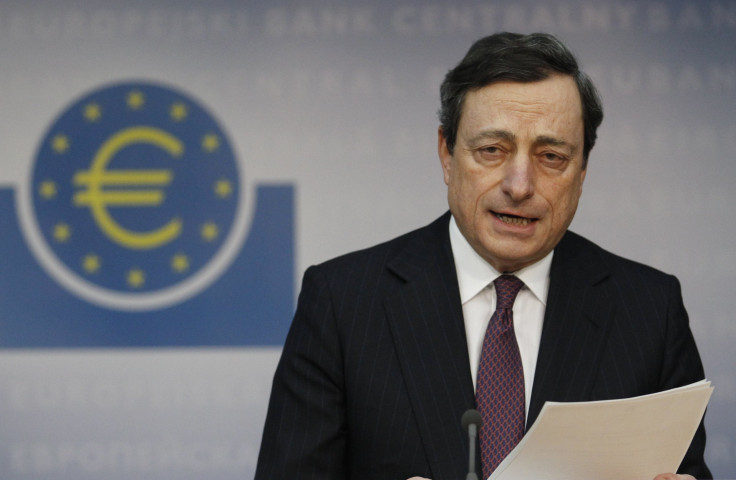Draghi Says He’s Done His Job, Spain's Leaders Must Now Take Initiative

ECB President Mario Draghi said Thursday the recent announcement by his central bank that it would engage in bond-buying so as to help bring down the borrowing costs being faced by Italy and Spain had done the trick. Now, Draghi said, it was time for the institution to step back and let the politicians get to work.
In what is becoming a Draghi catchphrase, Europe’s top central banker also repeated the assertion that “the euro is irreversible.”
Speaking at a press conference following the monthly meeting of the central bank’s rate-setting board, which let benchmark lending rates unchanged at 0.75 percent, Draghi affirmed the ECB was “strictly” within its mandate in pursuing the latest round of open-market policy and that the decision to run that course had allowed the bank to become a “fully effective backstop." He noted the central bank, which is waiting on the governments of Spain and Italy to make the official request for the ECB to start buying their sovereign bonds, was ready to start acting “today” if necessary. Spanish and Italian leaders have been reluctant to make that call to the ECB, as it is expected central bank intervention will come with strict austerity requirements.
While not describing what those requirements would be, Draghi did say at the press conference they would be necessary to burnish the “independence” of the ECB. More generally, he asked that governments “continue to implement the necessary steps to reduce both fiscal and structural imbalances and proceed with financial sector restructuring measures.”
There was little new information offered at the press conference, which even the top central banker, in a rare faux pas that took place as he spoke too closely to the live microphone following the conclusion of the event, called “boring.”
In general, Draghi seemed to stick to defending the central bank’s actions, explaining its prerogative to take those actions, and urging national leaders to find their own way.
Asked a question about bank re-capitalization being considered under a European Union bailout mechanism, an issue the central bank is not managing but has commented on in the past, Draghi refused to answer, saying "it's really very much in the hands of governments" and it "would not be alright for the ECB to prejudge the outcome."
© Copyright IBTimes 2025. All rights reserved.





















